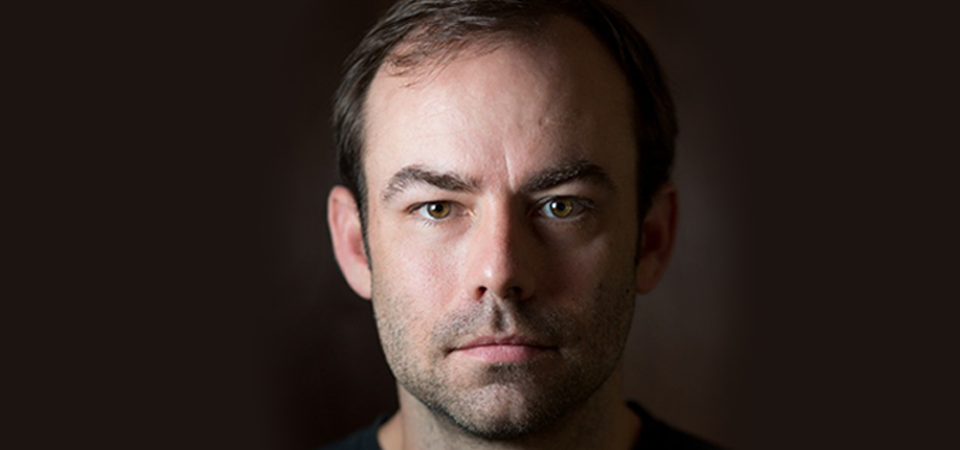- Home |
- Search Results |
- Brian Van Reet on his novel, Spoils

Brian, you enlisted into the American Army shortly after the 9/11 attacks. Could you tell us a bit more about your motivations?
Sure. At the time I was 20 years old, I was going to school at the University of Virginia, I was probably more reckless than the average 20-year-old man which is …reckless. I wasn’t doing well at school, I’d done well at high school but my first taste of freedom I’d kind of squandered with a lot of partying and so I guess joining the army wasn’t a political act for me it was more like running away with the circus. Maybe a little sexier than that. I thought real-life was happening somewhere else. Momentous things were happening and it wasn’t happening at college and I guess I wanted to get a taste. Looking back I would’ve advised my 20-year-old self not to do that, to think harder about it. But I wouldn’t have listened to me back then.
You were deployed to Iraq and you were part of a tank crew there and your original enlistment ended up lasting much longer than you planned.
Yes, my enlistment was for two years which was the shortest you could do, because I knew I didn’t want to make a career out of it. It was going to be this adventure, which sounds nuts, but I think that’s why people across history, when they volunteer for the army, it’s often for this sense of adventure. I enlisted for two years but ended up doing closer to four because there’s this thing called the stop-loss, which has been called the back-door draft, and basically it was President Bush saying ‘you’re not getting out, you’re staying in for the duration of your tour.’
When you finally did come home you went back to school, studied writing, and we now have Spoils. The book has three strands or main characters, a tank crewman called Sleed, a female soldier called Cassandra and a jihadi called Abu Al-Hul. Was it easier perhaps to write Sleed with him having a similar experience to yours and harder to write the jihadi character or had you spent time wondering about the ‘enemy’ which then made it easier to see things from their point of view?
The first fictional things I wrote about Iraq were the Sleed universe of characters. The second thing I wrote was from the jihadist perspective. During the war I wasn’t writing fiction but I was thinking ‘Who are we actually fighting and what are they thinking about this, what are they like?’ I think other thoughtful soldiers were having the same kind of thoughts. How can you not have that kind of question? And so fiction is a way for me to explore that and consider it from different perspectives. For me, the idea of writing a non-fiction book about my time in the war, I would be worried about painting people in a less than favourable light when they might not deserve that. Some people would deserve it, but others wouldn’t! With fiction I like the idea that you can choose whatever perspective you want. You have to earn it I guess, but you can try it at least.

When I think about the destruction we left behind; that bothers me
Did you feel a responsibility when writing about the jihadist character for example, that it was as fully fleshed out as it could be?
Yeah. That’s the most audacious character and so you have to work a little harder to convince the reader in some ways. You learn a little bit more about his childhood than you do the other characters. In a weird way it was easier for me to begin to imagine that psychology than it was to imagine what it was like to be a woman in the Army. When I was on active duty women were not allowed to be in combat arms units, like I was in, so in my tank battalion there were a couple hundred guys and zero women. I had very little contact with women in the military on a day-to-day basis and so that world felt, in a strange way, more exotic to me than the world of a young man who volunteers to fight in a foreign land. Granted, the context is radically different, there are religious overtones to it, but people are people and I think the young men volunteering for that cause are in many ways not that much different than I was as a 20-year-old. So a sense of responsibility, yes; to get it right and to do justice to that experience in some way.
There are extraordinary scenes of conflict which feel incredibly real, one taking place in a tank battle for example. Was it difficult to revisit those times when your life really did hang in the balance?
Not really, because it happened a long time ago. 10 years is a long time and your memories from that time are like a memory of a memory, it’s faded. More important than that: nothing bad really happened to me. I never got hit. It’s more troubling to me when I think about the book when I think of scenes where Iraqi civilians are mistakenly fired upon. When I think about the destruction we left behind; that bothers me. As far as anything that happened to me personally, more than anything I feel lucky to have gotten through it in one piece. It’s a weird thing because you realise you were part of this extremely destructive, perhaps, you might even say, evil action as a whole, but as a person, I’m not evil, but I wonder what does it mean that I participated in that. I don’t have an easy answer but the book is one of my ways to try to figure it out.